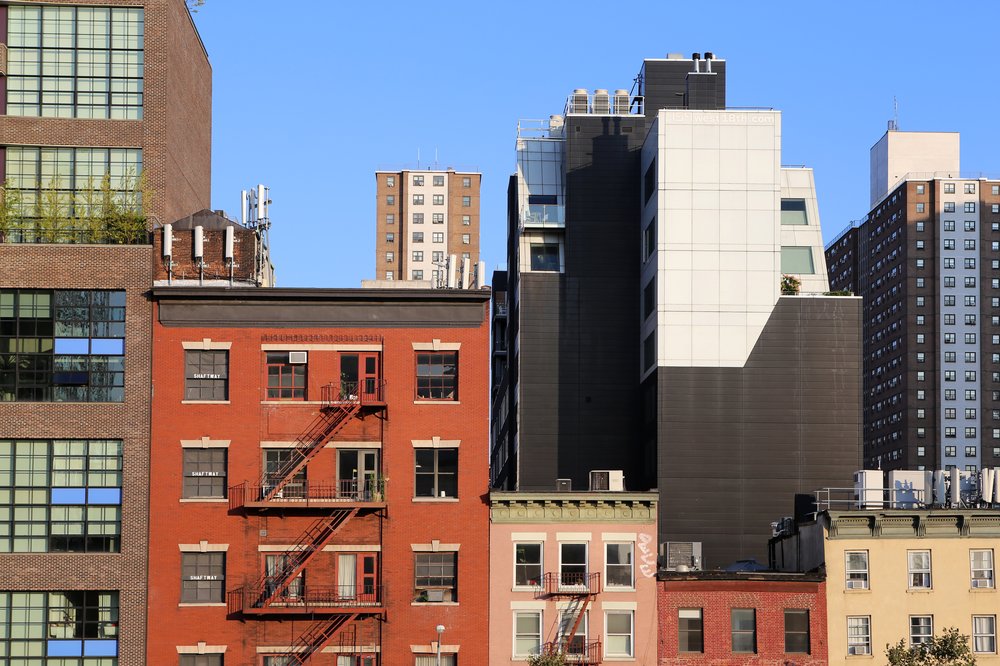NYC agrees to limit local residents’ preference in affordable housing lotteries
Jan. 22, 2024, 5:45 p.m.
The change, ending a housing discrimination lawsuit, will improve the odds for applicants outside of a community to move in.

New York City will limit the share of affordable housing units it reserves for local residents vying for “housing lottery” apartments in their own neighborhoods, in a settlement of a federal lawsuit that claimed the current policy perpetuates racial segregation.
Under the agreement finalized Monday, the city will set aside 20% of units for local residents in affordable housing lotteries through April 2029, down from a current “community preference” allotment of 50%. Beginning in May of that year, that cap will further shrink to 15%.
The settlement concludes a years-long federal lawsuit that claimed community preference perpetuates racial segregation and unlawfully limits the choices of applicants who want to move outside of their neighborhood, in violation of federal fair housing law.
Craig Gurian, executive director of the nonprofit Anti-Discrimination Center in New York and the plaintiffs' attorney, applauded the agreement as a victory against segregationists, old and new.
This lawsuit wasn't intended to and can't solve everything, but it gets to the question of who builds what, where.
Craig Gurian, Anti-Discrimination Center executive director
“City officials have turned away from the discredited politics of racial turf and said out loud, in words, that all of our neighborhoods need to belong to all of us,” Gurian said in a statement.
Mayor Eric Adams said in a statement that the settlement “preserves a critical tool that lets us build on this progress and continue creating new affordable housing in partnership with communities across the city.”
City officials have defended the policy as an important tool to prevent future displacement in low-income Black and Latino neighborhoods facing gentrification. They contend community preference has helped quell local neighbors’ fears of displacement when new housing comes to a community, and ensured that new and often controversial below-market housing gets built in the first place.
The lawsuit was filed on behalf of two Black women, Shauna Noel and Emmanuella Senat, both city residents and applicants to the city’s competitive affordable housing lotteries. Millions apply each year for just a few thousands below-market leases available, sometimes at substantial discounts, depending upon household income and family size.
Noel, who lived in Queens when the lawsuit was originally filed, said in a deposition that she was looking for a neighborhood with better schools, access to transportation, cultural hubs, and food. She applied to several affordable housing lotteries from 2015 to 2018, including in Murray Hill and Harlem, but wasn't selected to be interviewed.
“I want everybody who lives in any part of the city to be able to apply for affordable housing in any part of the city on an equal playing field,” she said. “That’s all I want.”
Winning a housing lottery
For many families or individuals, “winning” a housing lottery can mean moving to a neighborhood with a lower crime rate or better-performing schools, or away from environmental hazards, such as polluted air from a nearby highway.
The discounts on the privately owned units often spring from developer agreements for public subsidies or tax breaks. They’re available to households whose occupants earn a certain percentage of the local area’s median income, with extremely low-income families being eligible as well as those earning upward of $230,000 a year for a four-person family.
The settlement also requires the city to place the following statement on the affordable housing lottery website: "New York City is committed to the principle of inclusivity in all of its neighborhoods, including supporting New Yorkers to reside in neighborhoods of their choice, regardless of their neighborhood of origin and regardless of the neighborhood into which they want to move.”
The city will pay both Noel and Senat each $100,000 for any potential damages; it also calls for the city to pay $6.25 million in attorney fees.
In a press conference on Monday, Gurian pointed to other policies the city could pursue to reduce racial segregation, like building more affordable housing in the suburbs—a policy initiative Gov. Kathy Hochul attempted and failed to lock-in last year, following pushback from suburban lawmakers.
Gurian said that it remains to be seen if state legislators recognize that “the ‘pretty please’ approach to getting affordable housing built in the suburbs has not worked for 50 years," echoing comments he made in past conversations on WNYC.
He recommended that the city concentrate new affordable housing developments in areas with few public housing developments, little new housing built in recent years, and a very small share of Black residents.
Most of the city’s new affordable housing in recent years have been built in lower-income, predominantly Black and Latino neighborhoods, according to recen analyses..
“This lawsuit wasn't intended to and can't solve everything, but it gets to the question of who builds what, where,” Gurian said.
NYC residents get a leg up in housing lotteries in their own neighborhoods. Does that perpetuate segregation? The African American exodus from New York City A lesson from Gov. Hochul’s failed NY housing plan: ‘Pretty please’ isn’t enough, lawyer says